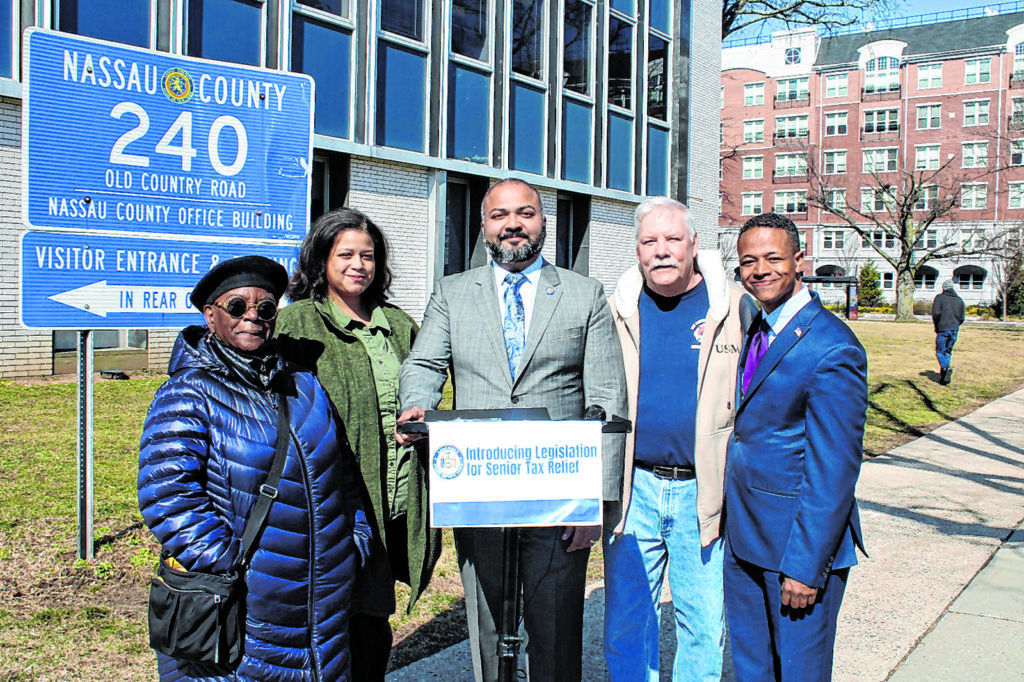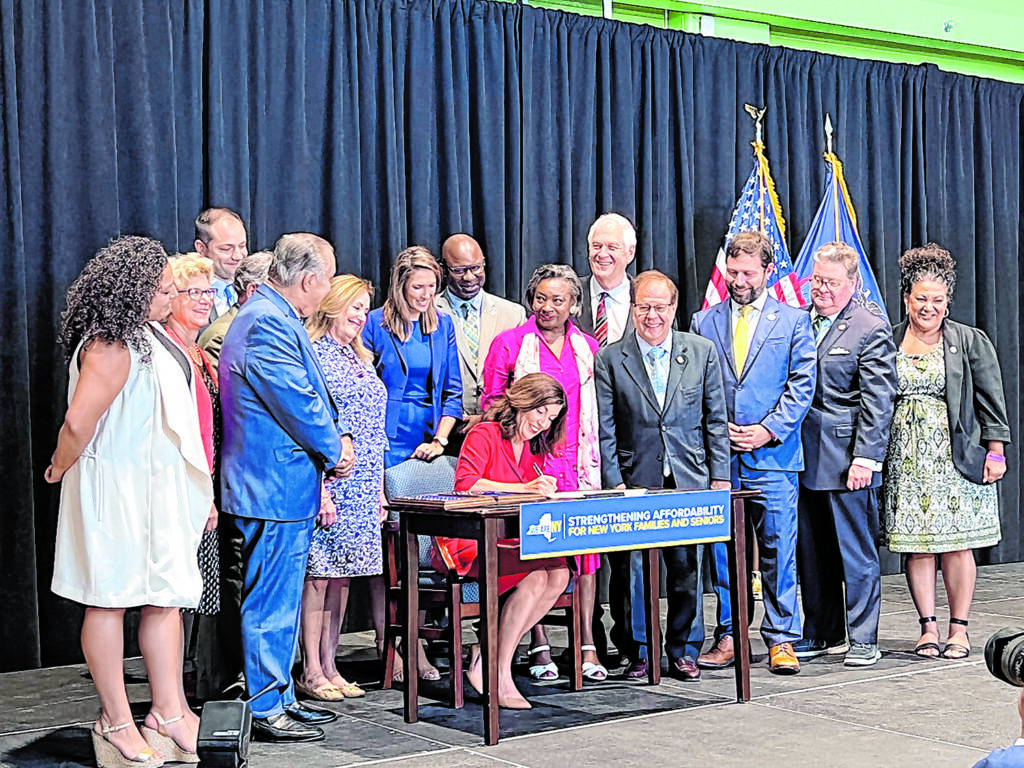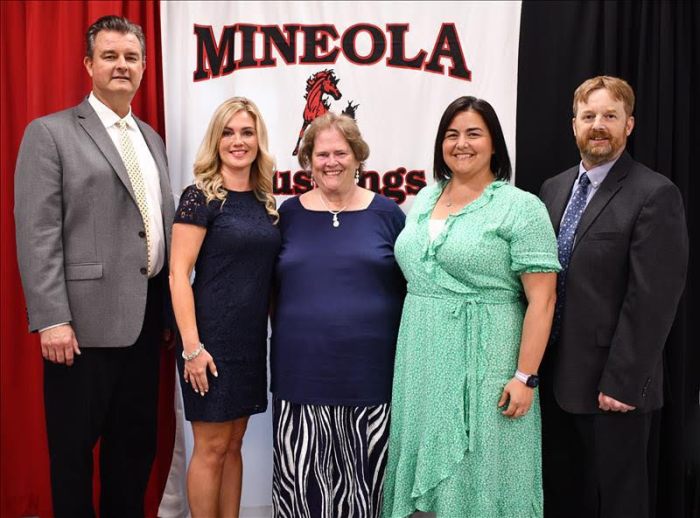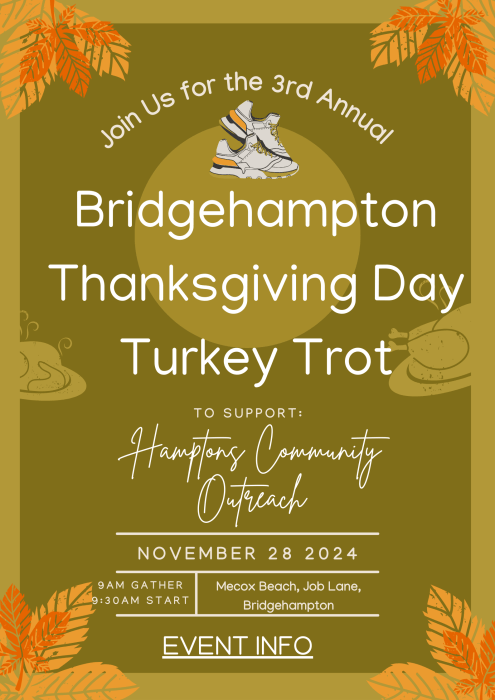More Nassau County seniors and residents with limited incomes and disabilities will soon be eligible for reduced property taxes with an updated cutoff for income, according to legislators. The previous income limit for seniors and people with disabilities to receive a property tax exemption was $34,400, established almost two decades ago. The new income cap would be $58,400 per year, a substantial increase on the previous limit made to adjust for inflation and similar factors.
The Senior Citizens and Persons with Limited Incomes and Disabilities property tax exemptions bill, first introduced in 2019 by Legislator Ed Ra, and re-introduced this year by Legislator Carrié Solages, New York State Assembly Member Michaelle Solages, and State Senator Kevin Thomas, has already been passed at the state level, and was signed by Governor Kathy Hochul earlier in August.
The next step, according to Nassau’s legislative (Democratic) minority, is having the legislative (Republican) majority schedule a hearing or vote on the bill to create a local ‘home rule message’ as soon as possible.
“Our region’s high cost of living can make it tremendously challenging for seniors and disabled homeowners to make ends meet,” Legislator Solages said in a statement when the bill was re-introduced this past March. In a recent phone interview, Solages also commented, “It it now in the hands of the Republican majority, who held a press conference [in favor of the bill] a few weeks ago.” He added, “People [impacted by the law] really can’t afford to continue paying high property taxes.”
Co-sponsors Legislator Debra Mulé and Legislator Gina Sillitti praised the bipartisan legislation, among others, calling its revisions overdue.
“It’s giving [homeowners] an opportunity that everyone else in the state has the ability to get as well,” explained Legislator Mulé in a phone interview. “Let’s let our citizens take advantage.”
When contacted for comment, representatives for Legislator Richard J. Nicolello, Presiding Officer of Nassau’s legislature, said that the bill will indeed be added to the legislature’s calendar sometime in September.
Back in March, Assemblymember Solages commented in a statement: “It isn’t unusual for a Nassau County resident to owe $15,000 a year in property taxes alone. We must provide relief for our seniors who struggle to make ends meet while living paycheck to paycheck on social security or disability insurance. That is why I have introduced a piece of legislation with my colleague Senator Kevin Thomas that will lower property taxes for residents who are eldery or have disabilities. This property tax relief is available to the residents of Queens who live just a few miles away, so I see no reason why it should not be available to the residents of Nassau County.”

Here’s some more information on the bill via the New York State Department of Taxation and Finance website:
Local governments and school districts in New York State can opt to grant a reduction on the amount of property taxes paid by qualifying senior citizens. This is accomplished by reducing the taxable assessment of the senior’s home by as much as 50%.
For seniors: To qualify, seniors generally must be 65 years of age or older and meet certain income limitations and other requirements. For the 50% exemption, the law allows each county, city, town, village, or school district to set the maximum income limit at any figure between $3,000 and $50,000. The maximum income limit for properties in New York City is $50,000. Localities have the further option of giving exemptions of less than 50% to seniors whose incomes are more than $50,000. Under this option, called the “sliding-scale option,” such owner can have a yearly income as high as $58,399.99 and get a 5% exemption in places that are using the maximum limit. Please check with your local assessor, city/town clerk, or school district to determine which local options, if any, are in effect.
For persons with disabilities: To qualify, persons with disabilities generally must have certain documented evidence of their disability and meet certain income limitations and other requirements. The basic exemption is a 50% reduction in the assessed value of the legal residence of the qualifying disabled person. For the basic exemption, the law allows each county, city, town, village, or school district to set the maximum income limit at any figure between $3,000 and $50,000. Localities have the further option of giving exemptions of less than 50% to persons with qualifying disabilities whose incomes are more than $50,000. Under this option, called the “sliding-scale” option, a qualifying owner can have a yearly income as high as $58,399.99 and get a 5% exemption in places that are using the maximum limit.
For veterans: There are three different property tax exemptions available to veterans who have served in the U.S. Armed Forces, including veterans who have served in the U.S. Army, Navy, Air Force, Marines and Coast Guard. Obtaining a veterans exemption is not automatic – If you’re an eligible veteran, you must submit the initial exemption application form to your assessor. The deadline in most communities is March 1—please confirm the date with your assessor.




























